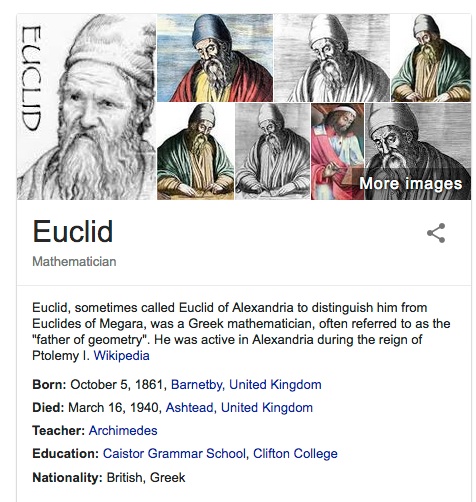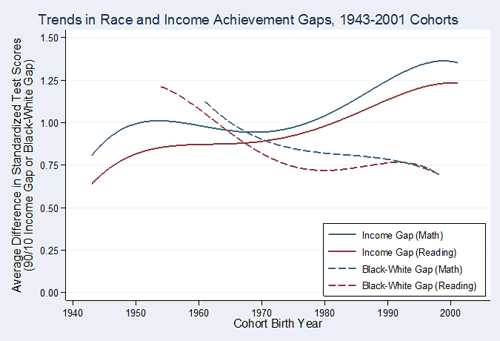From the monthly archives:
December 2016
I’m a pretty enthusiastic fan of Simon Brett’s Charles Paris mysteries — they are light, charming, and funny, rather like Simon Brett, if a little bloody and boozy (which, for all I know, Simon Brett is too) Decent Interval, his comeback appearance, is a good place to start.
The Charles Paris Mysteries on the radio, however, are simply exquisite. Bill Nighy is, as you’d expect, brilliant as the down-at-heel irresponsible, formerly philandering, lush. Jon Glover is hilarious as his neglectful agent, and Suzanne Burden makes his long-suffering estranged wife with whom he often lives as believable as anyone could. The scripts are terse, witty, and filled with in-jokes (I love his ring tones for his wife and Maurice, his agent). And, as in the books, nobody seems to have noticed the a very large fraction of all the murders in the UK seem to have happened with Paris in the next room. Radio 4’s Christmas present to us all is The Cinderella Killer. I haven’t listened to it yet, because they only just broadcast episode 2, and my preference is to wait for them all, and then binge (its only two hours — I’ll listen while shoveling snow some day). But I guarantee it will be perfect.
Oh, and incidentally, what is going on with Brian Protheroe? He seems to be in everything on the radio these days. When’s the next album coming out? Has anyone other than me heard of him?
The first time I was arrested, I had to cancel a meeting with one of my professors The police officers who arrested me had given me a beating between the arrest and the processing (in the van — this was 1985 during the Miner’s Strike, and police officers felt a fairly general permission to be fairly randomly violent to arrestees; they put the boot in while openly concocting the false stories they were going to tell about us). I was let out of Bow Street Station at 3 am, so that I could not get back to Herne Hill. In the morning I walked from the house of the friend I had woken at 4 to give me somewhere to sleep to campus, and informed my professor that I wasn’t going to be in a great condition to meet, and asked if we could postpone. He immediately asked what he could do to help, and asked whether he could testify at my trial (which he duly did, story here; great hilarity ensued). Some might call that coddling I guess, but it meant and still does mean a huge amount to me, and I always do the same (even if the charge is not related to politics and, to be clear, although I probably have some limit, I would support students who were arrested in causes I disagree with; something not at all unlikely to come up because by and large students don’t know my politics).
Knowing about this, a colleague (different college, different state) called yesterday to ask my advice. One of her students, an 18 year old African American woman, was arrested at an anti-Trump demonstration. This is in LA (I’ve also been beaten up by cops and arrested there! Thrill a minute, my life. Story here). Much of the charge sheet is illegible but it is a misdemeanor, and what I can make out is “Willfully and maliciously obstructing free movement or [illegible] for others public [illegible]’. The hearing is next week, and apparently neither the protest organizers nor the college have provided legal support. I’m trying to find my one lawyer acquaintance in LA with relevant experience (of the two lawyers who have worked for me, one is a judge, and the other is a labor lawyer and too fancy and famous for me to feel comfortable approaching him). In the meantime though — my colleague plans to attend the hearing with the student, and to record it and take notes. My advice is to ensure that 2 or 3 other students come along for support (it is enormously more tolerable to go through these experiences with support from friends than alone). But — should the student have a lawyer present? And if so, any suggestions of where to find one? (Again, its LA).
Dear unhappy voters of 2016:
We keep hearing you called populists and, to put it in your vernacular, you had one job and you’re doing it wrong.
Just like dog is the opposite of cat.
Years ago – don’t know why I remember – I posted about how some bands are loved, some bands are popular, even influential, without being heavily imitated. I put forth Steely Dan as a paradigm of a popular, influential band that isn’t imitated. I posited that it’s kind of hard to imitate them. (By contrast, The Velvet Underground is the band that sold a thousand records and started 10,000 bands.) That’s why I was interested when Apple Music offered, this afternoon, a playlist of “Inspired By Steely Dan” tracks. Further, the list promises to pass over “the yacht rock years” – so you can just put 10CC “I’m Not In Love” back where you found it!
Joe Jackson, Kanye West, Phoenix. When Ian Dury and the Blockheads came on I almost laughed out loud.
Here’s the list. How do you rank them? Slickeriness is not necessarily next to Danliness. Just putting an ooze of lounge jazz sleaze in there is not sufficient either, is it? (But it’s kind of hard to say. It’s kind of like trying to be influenced by British music hall tunes from the 40’s without being influenced by the Beatles. Logically, it should be possible, but, in practice, is it?) [click to continue…]
In the light of the discussions of charter schools in the poss below, and given that I attended a graduate seminar of education policy students last night at which none of the students had read it, it seems worth re-drawing your attention to Greg Duncan and Richard Murnane’s edited volume Whither Opportunity?: Rising Inequality, Schools, and Children’s Life Chances. Its already 5 years old, but it is really a brilliant achievement, drawing together numerous experts (if we’re allowed to listen to experts any more) with the task of summarizing everything we know about the relationship between economic inequality and educational disadvantage in the US. The take home is fairly simple: there’s a very strong relationship between economic inequality and educational disadvantage and after reading the whole book you might still believe (as I do) that it is possible to improve educational outcomes for poor children through improved schooling but you cannot believe that we could get large changes in outcomes without corresponding changes to the environments poor children grow up in — which would require massive reductions in both inequality and poverty.
I think its fair to say that the headline study was Sean Reardon’s finding that the achievement gap (measured by standardized tests) between rich and poor students has increased during the same 50 years during which the black-white achievement gap has decreased, as shown in the following graph:
Other findings include Meredith Phillips’ finding that between birth and age six, wealthier children will have spent as many as 1,300 more hours than poor children on child enrichment activities such as music lessons, travel, and summer camp, and the contribution by Waldfogel and Magnusson showing that the gap in ‘enrichment spending’ between rich and poor has expanded massively in the past 40 years — and that affluent families spend more than $8000 a year per child on enrichment activities. A child from a poor family is two to four times as likely as a child from an affluent family to have classmates with low skills and behavior problems – attributes which have a negative effect on the learning of their fellow students, and the rich=poor achievement gap in k-12 is accompanied by a growing income-based gap in college completion.
One of the studies shows that local job losses can lower the test scores of students with low socioeconomic status, whether or not the students’ parents have suffered the job losses; another that and students learn less math if they attend schools with high student turnover during the school year (one count against school choice, but also against allowing landlords to evict tenants with children mid-year).
Of course, to most readers none of these finding will be shocking (though, the Reardon finding is quite noteworthy). But they are worth bearing in mind. I am startled by local school officials for example, who say that citing poverty as a reason for low achievement is an ‘excuse’, and also by academics in education I come across who are reluctant to admit that poverty has seriously detrimental effects on the poor and the ability of poor children to learn (if poverty doesn’t have bad effects on those who are subject to it, elminating it might still be nice but doesn’t seem morally as urgent as it, in fact, is). As I say, I’m only mentioning Whither Opportunity again now after meeting a whole group of grad students who are concerned with educational inequality and didn’t know of it, and being prompted by the discussions of charter schools. Also I’d recommend going to Leo Casey’s comment on one of the threads which gathers together some other useful links.
The thread following Henry’s post responding to Tyler Cowen’s comments about school choice reminds me that people might find this site — Charter Schools in Perspective — useful. It contains valuable and well contextualized summaries of the basic facts on the ground and of the research as of about a year ago, and resources for journalists, academics, and the general public who want to know more. It emerged from a project that I was involved with (along with one of our occasional commenters Leo Casey) a couple of years ago, supported by the Spencer Foundation and Public Agenda. Maybe it would be helpful for the incoming Secretary in the Department of Education.
Tyler Cowen on school vouchers:
Since Donald Trump has picked Betsy DeVos to be education secretary, many commentators have been pulling out their anti-school choice arguments from the closet, and for the most part it isn’t a pretty sight. To insist on a single government-run school and trash school choice, while out of the other side of one’s mouth criticizing Trump for “authoritarianism,” and other times proclaiming “Black Lives Matter” is from my point of view a pretty poor mix.
To be sure, we’re still not sure how well vouchers work, and I would suggest continuing experimentation rather than full-on commitment. Frankly, I find a lot of the voucher advocates unconvincing, but let’s not forget the single most overwhelming (yet neglected) empirical fact about vouchers: they improve parent satisfaction.
… Of course parents may like school choice for reasons other than test scores. To draw from the first link above, parents may like the academic programs, teacher skills, school discipline, safety, student respect for teachers, moral values, class size, teacher-parent relations, parental involvement, and freedom to observe religious traditions, among other facets of school choice.
Perhaps now is the time to remind you that how the buyers like the product is the fundamental standard used by economists for judging public policy? That is not to say it is the final standard all things considered, but surely economists should at least start here and report positive parental satisfaction as a major feature of school choice programs. In fact, I’ll say this: if you’re reading a critique of vouchers and the critic isn’t willing to tell you up front that parents typically like this form of school choice, I suspect the critic isn’t really trying to inform you. [emphasis in original]
…To be sure, you still might not favor school vouchers. You might think they cost too much, you might think they will politicize private schools too much, or you might think they weaken national unity too much, to cite a few possibilities. … You need some actual evidence.
Rachel Reeves was on Westminster Hour at the weekend and sounded like a perfectly sensible person with whom one might have reasonable disagreements, until she was induced, as she should have anticipated, to talk about the by-election, at which point she defended Labour’s decision to stand a candidate not as if she was a loyal party member willing to say something stupid for the sake of unity, but as if she really believed that it was sensible and morally defensible behavior. This piece by Neal Lawson of Compass, if what it says is true — that some local party members preferred to refrain from nominating a candidate, but were told that the London Party would impose a candidate if they didn’t choose one) is… bemusing?
The fact that it was retweeted by Clive Lewis (I gather from my students that the phrase “I retweet that” means “hear, hear, old chap (or chap-ess)”, so I assume he approves, but what do I know?) is maybe a hopeful sign.
An aside, again on language use. I heard a Tory on the Jeremy Vine show this morning commenting on Tim Farran’s interview by saying that “I think Tim Farran has lost the plot”. “X has lost the plot” used to mean “X is disoriented and doesn’t know what they are talking about”. Said Tory MP, though, seemed to mean “I am disoriented and have nothing worth saying so will say something offensive about Tim Farran who seems to have had a great success, and is being pretty sensible and modest about the whole thing”. Is that what “X has lost the plot” has come to mean, or is it a phrase that now has many meanings?
The Grauniad has just resurrected Newcomb’s problem. I have a slightly special interest since the problem was popularized by one of my betes noires, Robert Nozick. So, in asserting that there’s a trivial solution, I have something of a bias.
[click to continue…]



